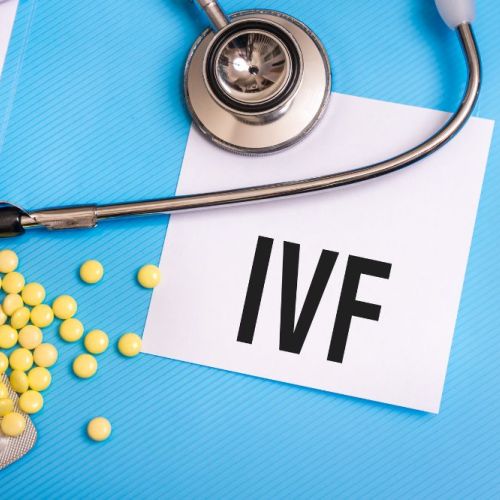When to Seek Fertility Treatment

Many couples experience disappointment and frustration when they decide they’re ready to have a baby but month after month passes without getting pregnant. It may seem like pregnancy should automatically happen without help, but there are many possible causes for having difficulty conceiving that can be corrected. So, how do you know when to seek fertility treatment?
The decision on when or if to seek fertility treatment is a personal one and when you are ready, The Center for Reproductive Health provides compassionate support for couples who are struggling to get pregnant.
Deciding to Seek Help
Couples under the age of 35 that have spent a year having unprotected intercourse without getting pregnant may need to consider the possibility that pregnancy may not happen without guidance from experts. After the age of 35, your biological clock is ticking and you may not want to postpone seeking guidance longer than six months. The older you get, the more likely you may struggle with infertility and if you’re over the age of 40, you may want to seek help after three months of trying to get pregnant.
Problems with your reproductive system may need to be addressed even if it’s been less than a year since you’ve been trying to get pregnant. If you’ve had more than one miscarriage, or if you have irregular periods, painful periods, or no periods at all, don’t postpone getting professional guidance. If you have chronic medical conditions such as hypertension, thyroid disease, or diabetes, you may want to work with a fertility specialist.
What Causes Infertility?
Infertility has many possible causes, and consulting experts in the field of assisted reproductive technology can help you uncover what’s at the root of your struggles and then can help you determine the best form of treatment. Some of the possible causes of infertility include:
- Problems with ovulation
- Pelvic inflammatory disease
- Endometriosis
- Poor egg quality
- Blocked fallopian tubes
- Low testosterone
- Sexual dysfunction
- Sexually transmitted infections
- Genetic disorders
- Exposure to environmental toxins
Lifestyle factors such as obesity, smoking, and substance abuse can also affect your reproductive health. Many of these causes can be corrected, which can improve the chance of getting pregnant.
Fertility Treatment Options
The best treatment options for you and your partner depend on the cause of infertility. Some reproductive problems can be surgically corrected if necessary and medications are available that can treat hormone imbalances. Some people benefit from changes such as attaining a healthy weight or discontinuing certain medications.
Advances in assisted reproductive technologies have made successful pregnancies possible for many couples. Determining the best form of treatment for you starts with a complete medical exam for both you and your partner which usually includes diagnostic testing. Your doctor also evaluates your family health history and prior pregnancies that you’ve had.
At the Center for Reproductive Health, you’ll find highly trained and experienced specialists who want to help you reach your goal of a healthy pregnancy. We understand how emotionally draining it can be to have difficulty conceiving, and we treat patients with respect and compassion every step of the way. Schedule a consultation today.
Eliran Mor, MD
Reproductive Endocrinologist located in Encino, Santa Monica, Valencia & West Hollywood, CA
FAQ
Reproductive endocrinology and Infertility is a sub-specialty of Obstetrics and Gynecology. In addition to managing medical and surgical treatment of disorders of the female reproductive tract, reproductive endocrinologist and infertility (REI) specialists undergo additional years of training to provide fertility treatments using assisted reproductive technology (ART) such as in vitro fertilization.
Reproductive endocrinologists receive board certification by the American Board of Obstetrics and Gynecology in both Obstetrics and Gynecology and Reproductive Endocrinology and Infertility.
In general, patients should consider consulting with an REI specialist after one year of trying unsuccessfully to achieve pregnancy. The chance of conceiving every month is around 20%, therefore after a full year of trying approximately 15% of couples will still not have achieved a pregnancy.
However, if a woman is over the age of 35 it would be reasonable to see a fertility specialist earlier, typically after 6 months of trying.
Other candidates to seek earlier treatment are women who have irregular menses, endometriosis, fibroids, polycystic ovary syndrome (PCOS), women who have had 2 or more miscarriages, or problems with the fallopian tubes (prior ectopic pregnancy).
Approximately 1/3 of the time cause for infertility is a female factor, 1/3 of the time a male factor, and the remaining 1/3 a couples’ factor.
At CCRH, we emphasize the importance of establishing a correct diagnosis. Both partners undergo a comprehensive evaluation including a medical history and physical exam.
Furthremore, the woman’s ovarian reserve is assessed with a pelvic ultrasound and a hormonal profile. A hysterosalpingogram (HSG) will confirm fallopian tube patency and the uterine cavity is free of intracavitary lesions. A semen analysis is also obtained to evaluate for concentration, motility, and morphology of the sperm.
Additional work up is then individualized to direct the best possible treatment option for each couple.
In vitro fertilization (IVF) is the process that involves fertilization of an egg outside of a woman’s body.
The process starts with fertility drugs prescribed to help stimulate egg development. In your natural cycle, your body is only able to grow one dominant egg, but with stimulation medication we can recruit multiple eggs to continue to grow. After about 8-10 days of stimulation, the eggs are surgically retrieved and then fertilized with sperm in a specialized laboratory. Fertilized eggs are then cultured under a strictly controlled environment within specialized incubators in the IVF laboratory for 3-5 days while they develop as embryos. Finally, embryos (or an embryo) are transferred into the uterine cavity for implantation.
Before deciding if IVF is the right choice, it’s important to sit down with an REI specialist to discuss available treatment options. For some people, other methods such as fertility drugs, intrauterine insemination (IUI) may be the best first choice treatment. At CCRH, we believe each individual couple is unique and not everyone needs IVF.
While not painful, the fertility medications may some side effects including headaches, hot flashes, mood swings, and bloating. The injection sites may also bruise.
Unfortunately, no. Many people think once they start IVF it’s a matter of time that they will be pregnant and have a baby. But according to national statistics per the Society of Assisted Reproduction (SART), on average 40% of assisted reproduction cycles achieve live births in women under age 35. The chances of success then continue to decrease with advancing age.
At CCRH, we employ only evidence-based interventions to ensure patient safety and optimal outcome. While we cannot guarantee a baby, we guarantee that you will receive the best, most advanced, personalized care to help you maximize your chance of a baby.
The average IVF success rate (success measured in live birth rate) using one’s own eggs begins to drop around age 35 and then rapidly after age 40. This is due to the decline in egg quantity and egg quality as a woman ages.
Our clinic’s success rate consistently beats the national average year after year.
Individual insurance plans often do not have any coverage for infertility treatments. If you have a group plan, you can call members services to see if they have coverage for infertility (including consultation/workup and IVF).
After your consultation with our REI specialist, one of our dedicated account managers with sit with you to go over the cost of treatment.




